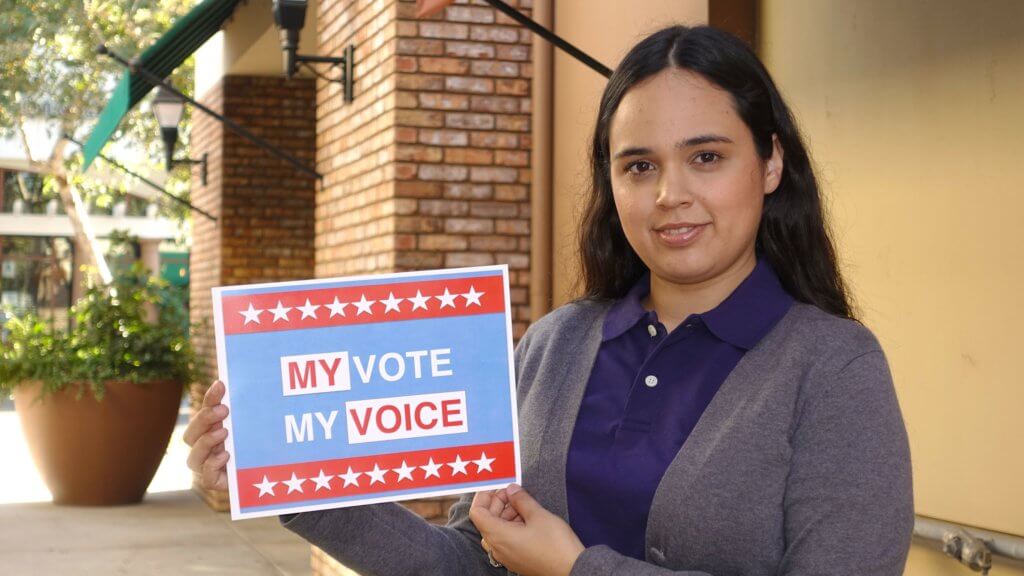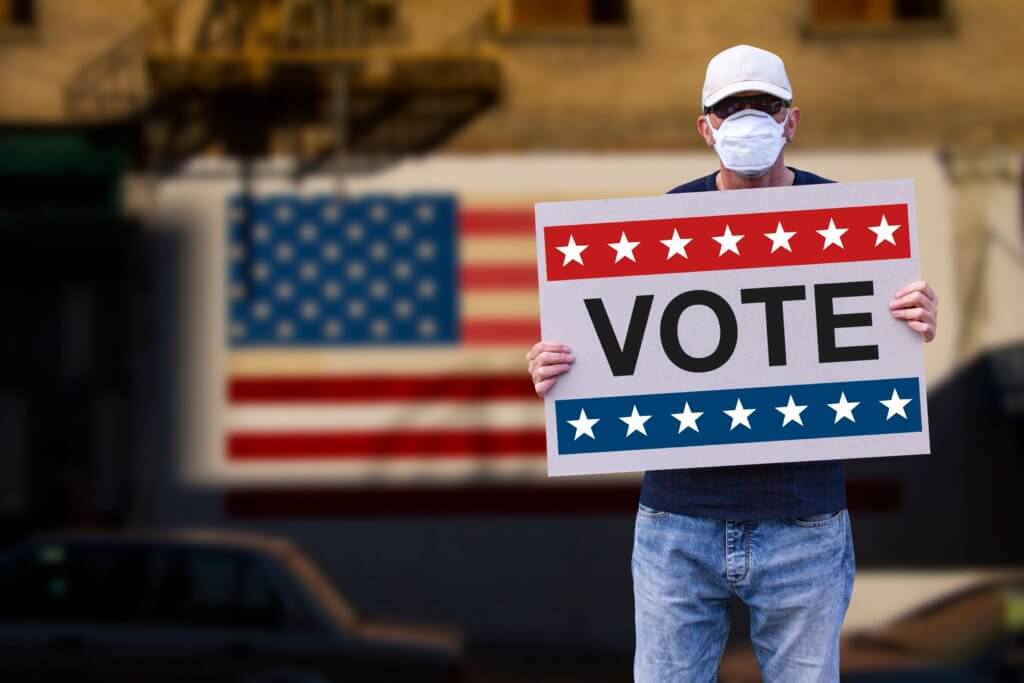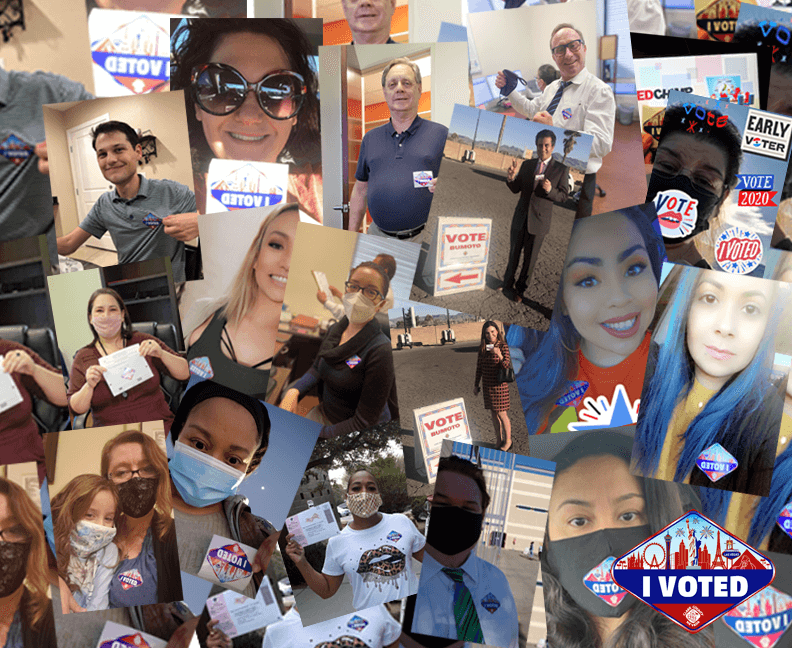October 23, 2020
Thomas Jefferson once said, “We do not have government by the majority. We have government by the majority who participate.” That statement couldn’t be more accurate during this election cycle.
Voting is the fuel that powers our democracy. Without it, the United States would be no different than the dictatorships, monarchies, and oligarchies of the past and present. Unfortunately, many people still feel like their votes don’t matter.
After all, if everyone else shows up to vote, it won’t matter which way you vote one way or another because it won’t have an impact, right? That couldn’t be further from the truth. Imagine you’re in a choir, and you decide not to sing since everyone else is already singing. Now imagine that everyone else in the chorus does the same thing. There would be no music.
The same is true of voting. The more people who participate in the voting process, the more our government and society can hear our collective voice. It’s the sound of democracy and freedom.
Learn more below about the importance of voting and why your vote matters in 2020.
The History of Voting in The U.S.

Currently, most U.S. citizens over the age of 18 have the right to vote in federal and state elections. While many of us take this right for granted, it wasn’t always easy for citizens to vote. In fact, it wasn’t until the 1900s that most citizens were given the right to vote.
Our founding fathers knew how important voting was to develop and maintain a democratic government. That’s why the first Article in the Constitution (Article 1) focuses on how the members of the Senate, House of Representatives, and the president are elected.
Popular votes elect members of Congress within their states. The office of the presidency, however, is chosen based on electoral votes. While the Constitution writers created how we would vote, they were not so clear on who could do so. For the most part, they left that up to the state’s to decide.
Initially, most states decided only to allow those who were white, men, and owned land to vote. This left out many vital groups to our society, like African-Americans, women, poor people, and many other disenfranchised groups.
Even after federal and state laws dictated that most citizens could vote, there were still acts of egregious voter suppression (poll taxes, literacy tests, and other actions to discourage voting) happening throughout the country.
Overt voter suppression tactics were used all the way up until the Voting Rights Act of 1965 was passed, which effectively ended Jim Crow-era laws. Take a look at a brief timeline of voting rights legislation below.
- 1787: Constitution is ratified
- 1789: First presidential elections are held
- 1869: 15th Amendment was passed, giving black men the right to vote
- 1870: The Civil Rights Act of 1870 is passed (later amended in 1957, 1960, and 1964)
- 1920: 19th Amendment passed, giving women the right to vote
- 1964: 24th Amendment passed, which eliminates poll taxes, literacy tests, etc.
- 1965: Voting Right Acts of 1965 passed, ending Jim Crow-era laws
- 1984: The Voting Accessibility for Elderly and Handicapped Act
- 1986: The Uniform and Overseas Citizen Absentee Voting Act
- 1993: The National Voter Registration Act (NVRA)
- 1971: The voting age is lowered from 21 to 18
- 2002: The Help America Vote Act (HAVA)
- 2009: Military and Overseas Voting Empowerment (MOVE) Act of 2009
These laws were passed because Americans, just like you, bravely fought for an inclusive society where everyone’s vote was equal.
They knew how important it was to cast a vote. They felt the pain of not having a say in our democracy and risked their lives in many cases to ensure that people who came after them would have a fair chance. Now, it’s your turn to push the fight forward by exercising your right to vote.
How We Vote For The President
Since the president and vice president aren’t elected via the popular vote, it can be a bit confusing to understand exactly how we elect the commander in chief. Instead of directly voting for the president, we vote for electors in the United States, who then cast their votes based on the popular vote in their state.
Electors are proportionally awarded to states based on the number of representatives they have in Congress, hence why California (population 39.5 million) has 55 electors, and Nevada (population 3.08 million) has six electors.

Explaining The Electoral College
The founding fathers negotiated amongst themselves about balancing appropriate representation across states while still considering the popular vote. The Electoral College was the result of those negotiations. If you’re still a little confused about the process, here’s a more straightforward way of thinking about it:
- Votes are cast for president in your state and then tallied
- In 48 states plus Washington D.C., the winner gets all Electoral College votes for that state
- In Nebraska and Maine, electoral votes are divided proportionally
- Presidential candidates need 270 Electoral College votes to win the election
In most states, electors are required by law to cast their votes based on the state’s popular vote. While some states don’t have laws in place that mandate electors follow this rule, it’s extremely rare for an elector to go against the public’s wishes.
Why Your Vote is Important

Are you still not sold on how significant one vote multiplied by 250 million eligible voters can be? Perhaps we can settle that. The most critical factor encompassing voting’s importance is that each vote cast has real and tangible consequences. That’s especially true in 2020. Listed below are our top five reasons why voting is crucial.
- COVID-19: Millions of people have been diagnosed with coronavirus, and hundreds of thousands have died. Your vote will play a significant part in how this pandemic is handled moving forward.
- Healthcare: Speaking of health, both candidates on this year’s ballot have significant differences in how they envision the future of healthcare in the U.S. Take some time to learn more about what their plans are for your health.
- Your Money: Remember, the sitting president is the leader of their party and the nation. Their plans for tax reform, legislation that affects businesses, and overall economic policies impact you, your family, and your community.
- Voting Creates Change: When the nation voted for George W. Bush in 2000, the consensus was safety and security. On the other hand, when the nation voted for Barack Obama in 2008, the goal was to make a change.
- Consequences of Not Voting: Have you ever thought about what changes you would make if you were in a position of power? While one person may not have that much power, we (as a collective) have the power to vote in leaders that will do what we sent them to D.C. to do; look out for our best interest. When you don’t vote, you decrease the power of the people.
If You Can’t Vote – You Can Still Make Your Voice Heard
If you’re not 18 years old, not yet a citizen, or can’t vote for other reasons, that doesn’t mean you can’t be a part of the democratic process. While you may not be able to cast a vote, there are other ways for you to get involved and push for your beliefs.
The first step to get involved is to stay informed on state and national issues that affect your community and others. You must fact-check your information and seek out sources that are proven to be reliable and trustworthy.
The second step is to use your platform (i.e., Facebook, Instagram, Twitter, peer groups, etc.) to encourage others to vote, speak out about issues important to you, and shed light on problems that others need to hear about.
Lastly, you can volunteer for candidates or campaigns you support.
Voting is the glue that holds this great nation together. Citizens of the U.S. have different parties, ideologies, wants, and needs. However, on November 3rd, we all have the opportunity to participate in the same democratic process that’s helped us to lead the world for hundreds of years.
Regardless of your political affiliation, it’s essential to pay homage to those who lost their lives fighting so we could all continue pushing our country forward.
From the Paul Padda Law Firm, we encourage all eligible citizens to vote like your lives depend on it – because, in many ways, it does.

